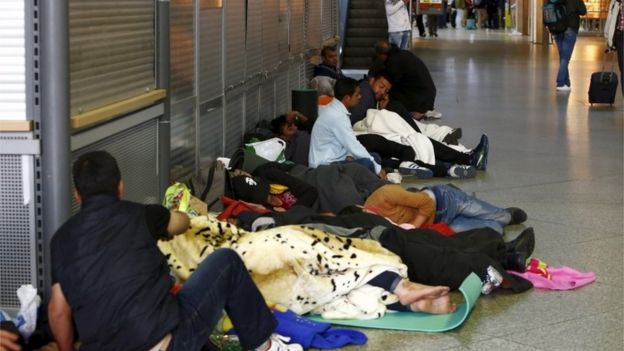by Shelby Vcelka
Impunity Watch Desk Reporter, Europe
BUDAPEST, Hungary–
Hungarian Prime Minister Viktor Orban warned last Friday that the police would take tougher action against migrants beginning next week. He alleges that the migrants entering the country rebelled against authorities by capturing railway stations, and refusing to be registered as refugees by the UN.

Hungary is being used as a transitory state, as migrants are traveling through to reach wealthier countries such as Germany and Sweden. In response, the legislature has passed emergency measures to help restrict the number of migrants coming through Hungary, effective September 15th. Orban has said that from September 15th on, migrants who cross the border illegally will be arrested, and that authorities cannot be forgiving of illegal border crossing. Hungarian prisoners and soldiers are also working on building a fence along the Hungarian-Serbian border to stem the flow of migrants into the country, and discourage illegal migration.
Over 170,000 migrants have crossed over into Hungary this year, with thousands more expected to make the journey. Most of these migrants attempt to avoid being registered in Hungary, afraid that they will be stranded or returned to Hungary once making the journey to a different country. The refugee camps that have popped up all over the country are woefully inadequate, with soldiers tossing food to crowds of migrants. Human Rights Watch, an international human rights watchdog group, have condemned the status of these camps, as they do not provide migrants with the basic requirements of food, water and shelter.
Overwhelmed with the number of migrants that have crossed the border, Hungary is also going to guard the southern border with the army. “Considering that we are facing a rebellion by illegal migrants, police have done their job in a remarkable way, without using force,” Orban said after meeting with Manfred Weber, the chairman of the conservative European People’s Party in the European Union.
Already, backlash against the new, restrictive laws is mounting against the Hungarian Parliament. A major concern for Hungarians is where the migrants will go once they have been arrested for illegal migration, and how much it will cost taxpayers to imprison them. Additionally, Hungarians fear that they will not be able to stem the flow of refugees into the country, even with the fence and new measures. The practical realities of the law, many Hungarians believe, will do nothing but make the situation worse.
For more information, please see–
BBC–Europe migrant crisis: Hungary ‘will arrest illegal migrants’— 11 September 2015
BBC–Migrant crisis: How will UK towns deal with refugees?— 11 September 2015
CBS–Hungary cracking down on migrants crossing border— 11 September 2015
PBS–Hungary enacts tougher laws on illegal immigrants— 11 September 2015
Reuters– Orban: Hungary will arrest ‘rebellious’ migrants— 11 September 2015

